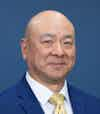Employment Policy

American job creators help workers provide for their families and lead healthy, secure, and fulfilling lives. The Chamber advocates for federal and state-level policies that improve the business climate and drive economic growth while providing opportunities for workers to thrive.
Explore more
Don’t Let Washington Take Your Job Rights Away
Feature story
Why the Faster Labor Contracts Act means less freedom and more government control for America’s workers.
Latest
Become a part of the world’s largest business organization and network
U.S. Chamber members range from small businesses and chambers of commerce across the country to startups in fast-growing sectors, leading industry associations, and global corporations.
Discover the ROI Chamber membership can deliver for you.
Our Work
The U.S. Chamber works with leaders at the U.S. Department of Labor, the Equal Employment Opportunity Commission, the National Labor Relations Board, Congressional committees, and state legislatures to protect opportunities for independent contractors, promote needed immigration reforms to welcome global talent to the American workforce, and preserve every American’s right to work.
Related Litigation
Events
- TechnologyTechnology Leadership Summit 2026Wednesday, March 1108:30 AM EDT - 02:00 PM EDTU.S. Chamber of Commerce, 1615 H St NW, Washington, DC 20062Learn More
- InfrastructureKeep America Moving SummitTuesday, March 1708:00 AM EDT - 05:30 PM EDTU.S. Chamber of Commerce, 1615 H St NW, Washington, DC 20062Learn More
Latest Content
- While the SEIU’s ballot initiative has a certain populist appeal, if passed it is likely to have negative repercussions on jobs and workers. It seems that once again, the SEIU is putting politics over prosperity.It’s not surprising that the SEIU would leverage its government influence to gain new members, but it is unfortunate that New York workers and taxpayers are the ones impacted the most.Eight Oregon House Republicans allege SEIU Local 503’s leader submitted false testimony to support failed bill HB 3838, prompting an ethics investigation.Walk-out Over Demands for Massive Pay Increase and More BenefitsRegional Director Alleges Labor Law ViolationsProposal Previews Labor’s Holiday Wish-ListSen. Bill Cassidy's labor framework supports innovation, worker freedom, and economic growth.






















